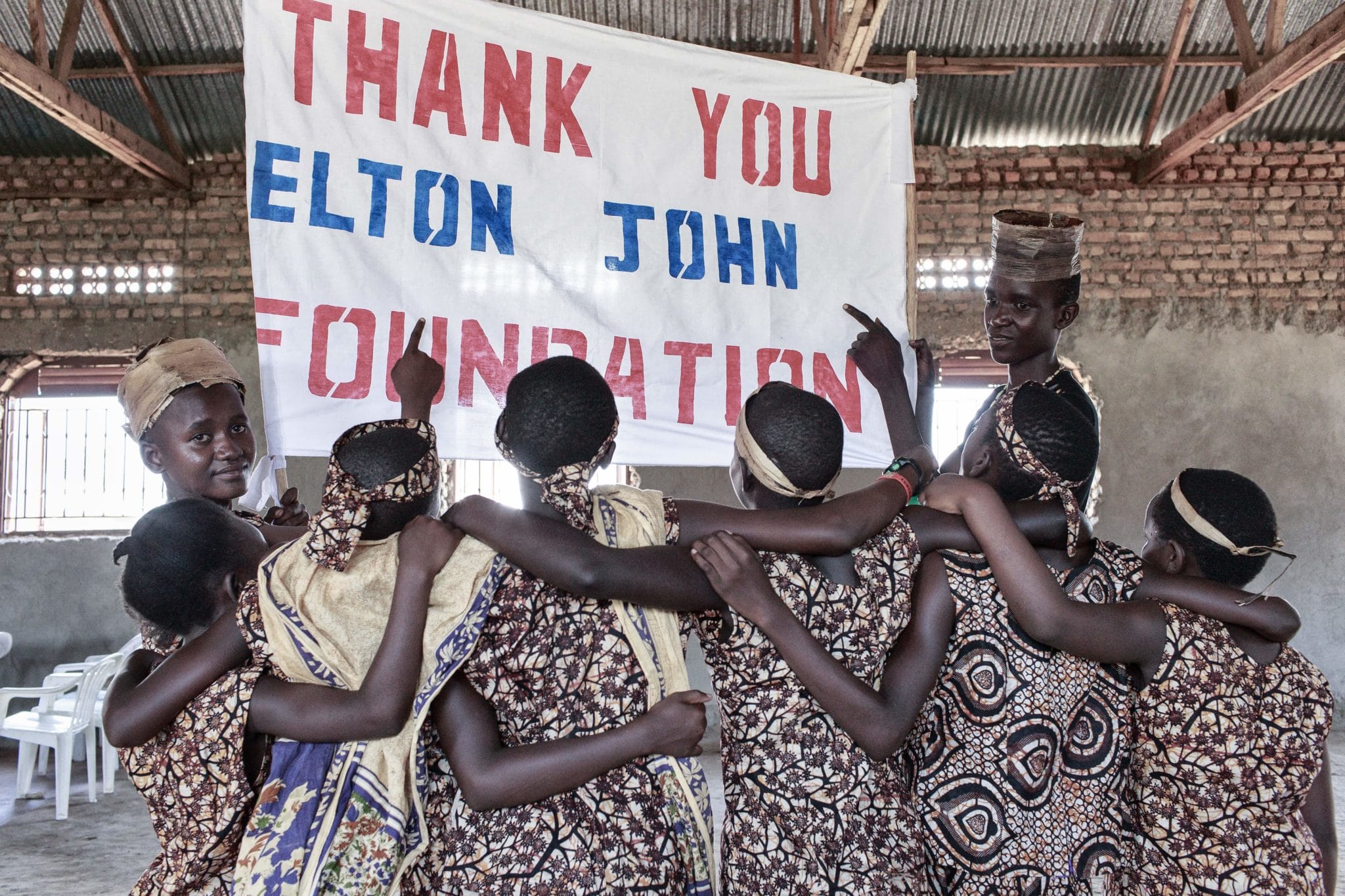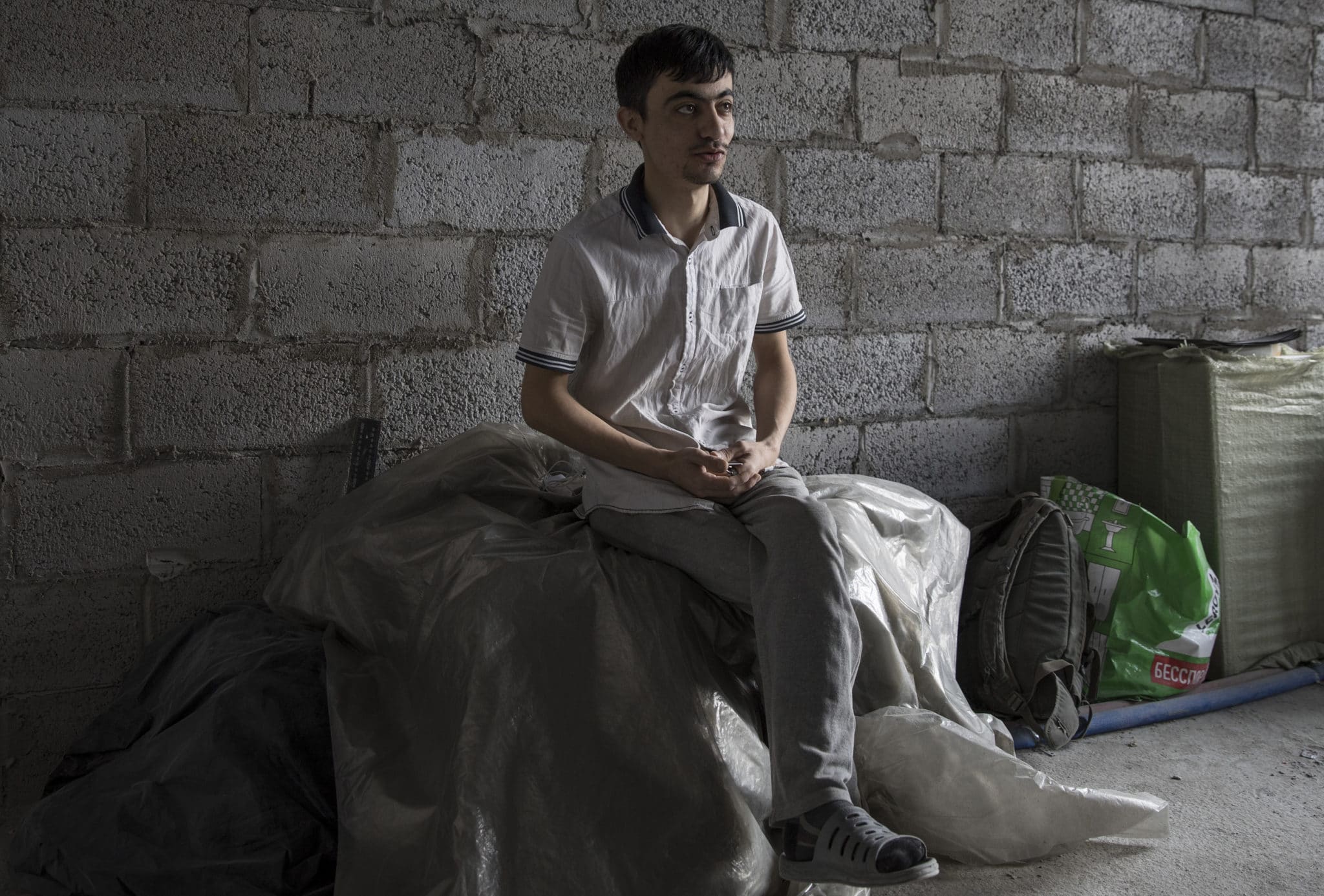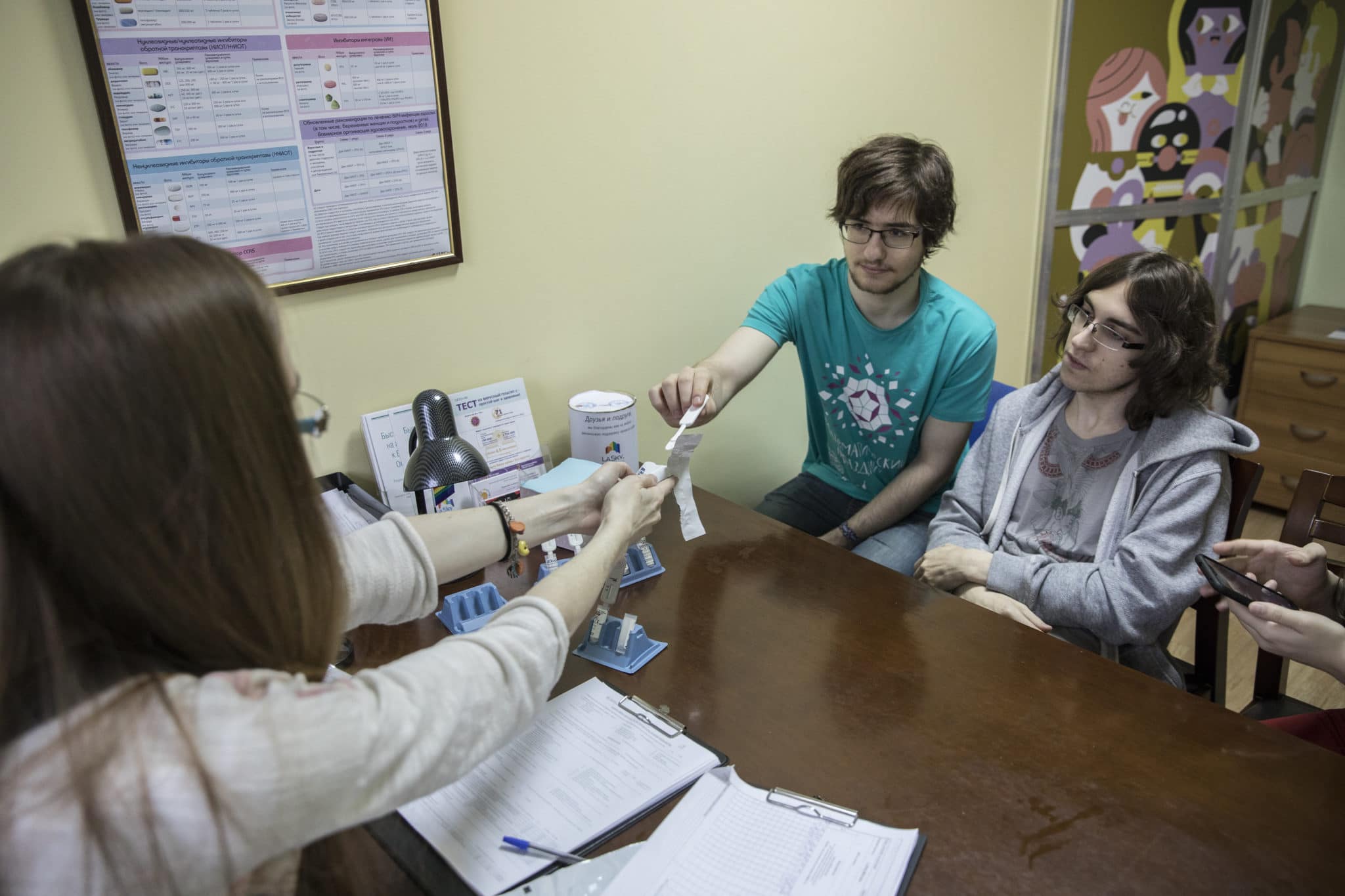HIV and AIDS Global Facts and Statistics
All of these numbers represent human lives. The below data is referenced from UNAIDS and Funders Concerned About AIDS.

The Elton John AIDS Foundation is the 5th top HIV-related philanthrophic funder globally
Photo credit: Carol Allen-Storey
0
people are newly infected with HIV every minute around the world
70% of new HIV infections globally are among key vulnerable populations such as gay men, sex workers, people who use drugs and their partners.

The Elton John AIDS Foundation is the number one philanthropic funder of HIV programming in Eastern Europe and Central Asia by a non-profit organization
Photo credit: Modola
0M
The number of people living with HIV worldwide
The risk of acquiring HIV is: 28 times higher among men who have sex with men
0
times higher among drug users
0
times higher for female sex workers
0
times higher for transgender women

The Elton John AIDS Foundation is the 3rd top funder of HIV programming in East Asia and Southeast Asia
0M
The number of people not accessing life-saving HIV treatment

More than 99% of new HIV infections in Eastern Europe and Central Asia are in key populations such as gay men, sex workers, people who use drugs and their partners.
Photo credit: Modola
0M
people are accessing life-saving HIV treatment worldwide
Frequently Asked Questions About HIV and AIDS
What are HIV and AIDS
- Human Immunodeficiency Virus attacks a person’s immune system. It destroys cells that fight infection and disease, meaning the body is less able to defend itself.People who acquire HIV will live with it for the rest of their life, but with treatment it can be controlled. As long as someone with HIV gets the right care, they can have a healthy immune system.
- If left untreated, HIV can develop into AIDS – Acquired Immune Deficiency Syndrome.This is the most advanced stage of HIV, when the immune system is significantly damaged. When HIV progresses to AIDS, a person can be more likely to get severe infections and certain cancers.
AIDS cannot be transmitted. The HIV virus can. Read more about HIV & AIDS on the HIV.gov website.
Is HIV Curable?
There’s currently no cure for HIV, but there are very effective treatments that enable people living with the virus to live a long and healthy life.
How is HIV transmitted?
HIV is passed on through certain bodily fluids, if a person with HIV has a detectable viral load. These include blood, semen (including pre-seminal fluid, or pre-cum), vaginal fluid, anal mucus and breast milk.
HIV is not passed on by kissing, touching, spitting, sneezing or coughing. It’s not passed on through saliva, sweat or urine.
Find out more about how HIV is transmitted on the HIV.gov website.
What treatments are available for people living with HIV?
People with HIV can take medicine called Antiretroviral Therapy (ART) to reduce the amount of HIV in their body. It’s recommended for everyone with HIV, as soon as possible after diagnosis. Treatment usually involves a combination of medicines taken in pill or injection form depending on the person’s situation.
People living with HIV who get the support they need and remain in treatment can get their viral load to an undetectable level, so that they can live long and healthy lives, and not pass the virus on.
Learn more about HIV treatment on the Centers for Disease Control and Prevention website.
How can HIV be prevented?
It’s crucial to practise safe sex and regularly get tested for HIV. Encourage your sexual partners to do the same.
You can reduce your risk by:
- using condoms during sex
- consider using preventive methods like pre-exposure prophylaxis (PrEP)
- not sharing needles or other equipment to inject drugs.
Regular testing helps reduce the spread of HIV and other STIs.

